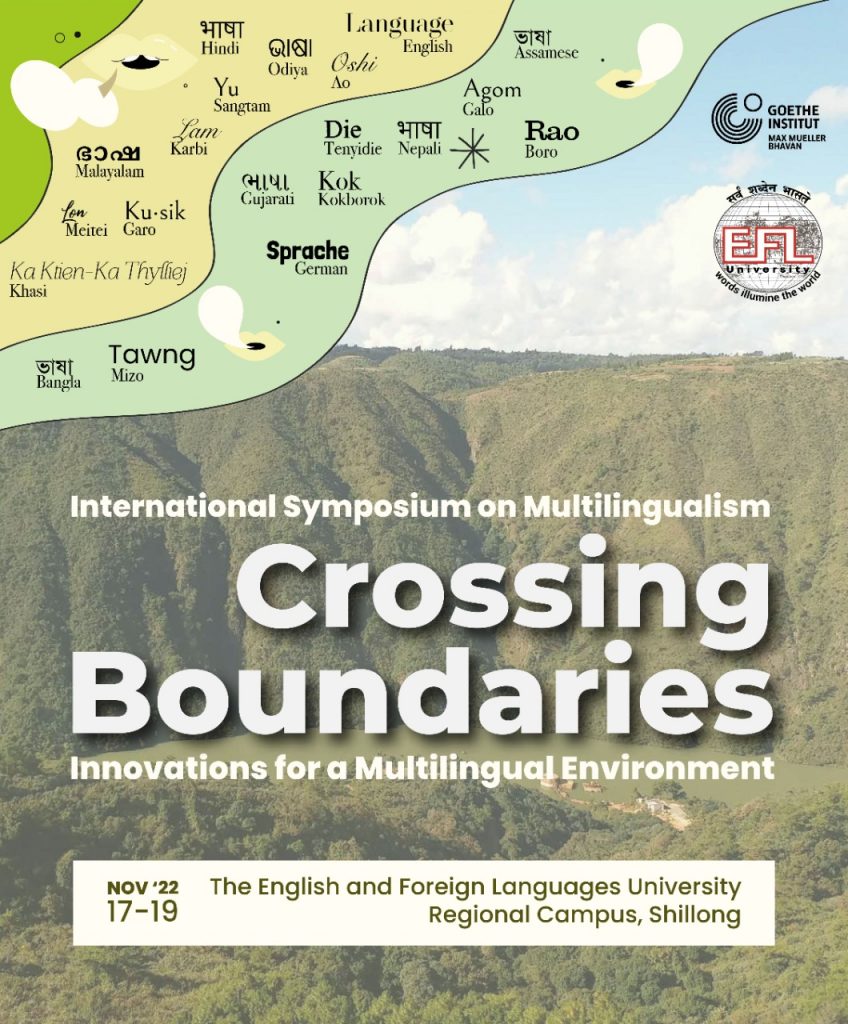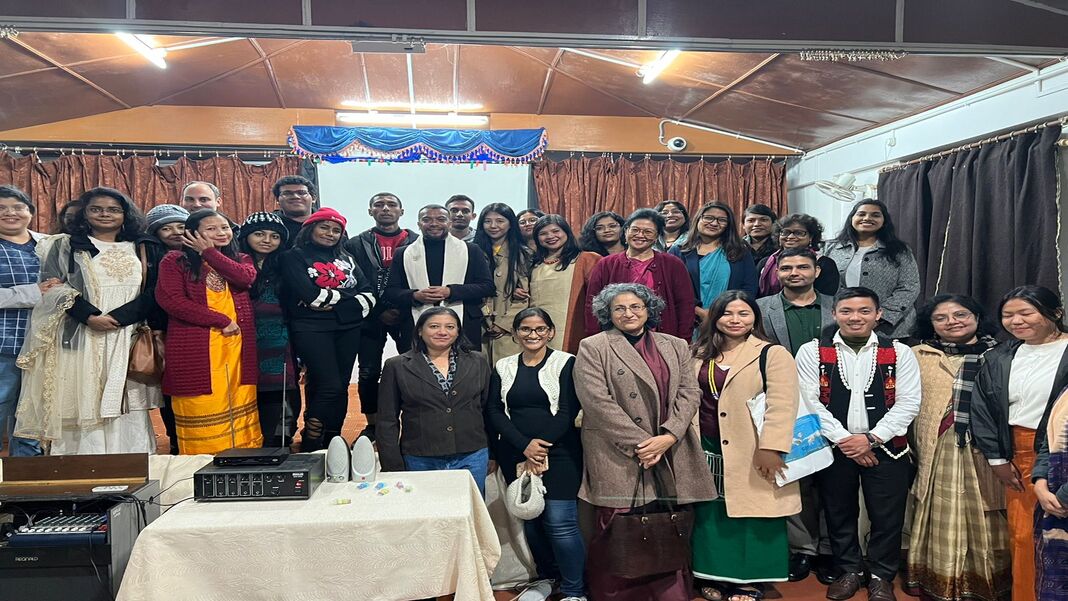Shillong, Nov 19: The 3 – day International Symposium on Multilingualism entitled ‘Crossing Borders: Innovations for a Multilingual Environment’ held at the EFL University, Regional Campus, Shillong, concluded on Saturday.

The internal symposium was inaugurated by N. Munish Singh, Zonal Director, ICCR North Eastern Region as chief guest on November 17, 2022, in the presence of Prof. Ravindra Kumar Vemula, Director, EFL University, Regional Campus, Shillong.
The symposium organized jointly by the Goethe-Institut Kolkata with Department of Germanic Studies and Department of Linguistics at The English and Foreign Languages University (EFLU), Shillong brought together Indian language and German teachers from East and North East India as well as students of Linguistics.
The gathering was welcomed by Rebekah Tham, Head of the Department of Germanic Studies who presented the core ideas and goal of the symposium which is to open up spaces for a dialogue among the language families vis-a-vis the different mother tongue speakers along with an important international language, i.e., German.
Anita Mitra, Educational Cooperation Officer of the Goethe Institut said “every language spoken in the world represents a special culture, a melody, a colour and a value, and for everyone, the mother tongue is certainly one of the most precious treasures in our lives. On the one hand, It is a responsibility to preserve it and pass it on from generation to generation. On the other hand learning another language brings many benefits to our lives. A new language opens a new window into our worldview and makes us more open-minded and respectful of other cultures, lifestyles, customs and beliefs. Being multilingual allows us to participate in more than one language community. The better we master a language, the larger our network, the deeper our understanding of our mother tongue and the rediscovery of our roots.”
The inaugural programme included a keynote address from Dolon Gupta, Co-founder of Business Communication Facilitators Association of India (BECFAI), followed by introductory remarks by Miguel Rezzani from Goethe Institut Berlin.
It is the first event of its kind where both Indian language teachers and foreign language teachers shared their ideas on teaching methods in a multilingual setting to work together on what is best for language learning through multilingualism.
With a focus on multilingualism, the symposium provided a platform for exchange and discussion not only on the German language but also on the Indian regional languages of Eastern and North Eastern India. It addressed topics such as the meaning of multilingualism in the East Indian context, theories of multilingualism in the teaching of German and the promotion of cultural diversity in the classroom.
The symposium included workshops, lectures and interactive sessions conducted by leading national and international experts.
Oral Epic Performance: Memory, Recovery, Delivery – Dr. Desmond L. Kharmawphlang, Professor, NEHU, Dept. of Cultural & Creative Studies; Language versatility as a critical element in tourism entrepreneurship for enhanced tourist experience – Dr. Benjamin L. Lyngdoh, Associate Professor, Dept. of Tourism and Hotel Management, NEHU, Shillong; Language Diversity” as a lesson topic – Miguel Rezzani, Educator & Advanced Trainer, German as a Foreign Language Goethe-Institut Berlin; Towards the designing of a Multilingual Glossary addressing linguistic and cultural challenges – Dr. Jayati Chatterjee, Professor, and Dr. T. Temsunungsang, Assistant Professor, both from the Department of Linguistics, The EFLU, Regional Campus, Shillong; Conceptualisation of German as an Additional Language textbook from a critical and decolonial perspective – Prof. Dr. Mergenfel Ferreira, Gastprofessorin an der Friedrich-Schiller-Universität Jena Associate Professor at Federal University of Rio de Janeiro (Online); Trans-Languaging: Opportunities over Problems – Rrivu Banerjee, M.A. Friedrich-Schiller-Universität Jena (Online).



